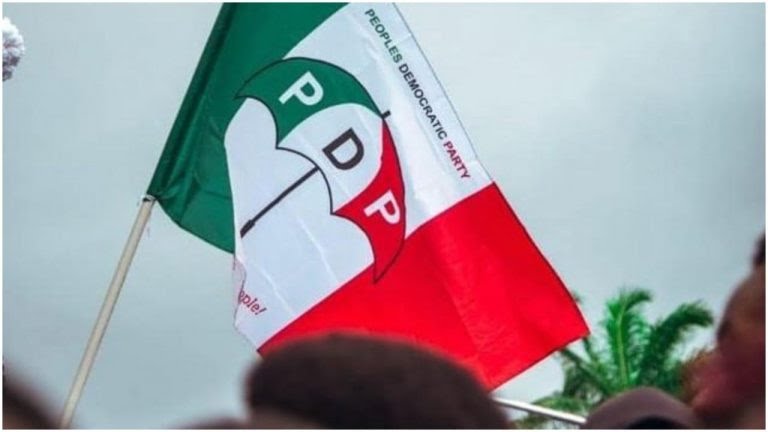The Peoples Democratic Party (PDP), a prominent force in Nigerian politics, faces an existential crisis that threatens its viability in the 2027 general elections. Tony Okeke, a former National Publicity Secretary of the party, has issued a stark warning, highlighting the internal divisions and lack of cohesion that plague the PDP. He argues that unless the party addresses these fundamental issues, it stands little chance against the ruling All Progressives Congress (APC). While acknowledging the PDP’s historical significance and name recognition, Okeke emphasizes that a house divided cannot stand, especially against a formidable opponent like the APC. He points to internal strife and a perceived lack of discipline as key factors contributing to the party’s current predicament.
Okeke lays the blame squarely at the feet of former Vice President Atiku Abubakar, accusing him of causing more damage to the PDP than any other individual. He chronicles a pattern of disruptive behavior by Abubakar, beginning with alleged attempts to undermine President Olusegun Obasanjo’s administration shortly after their joint victory in the early years of the PDP’s rule. This alleged maneuvering, dubbed the “Mandela option,” aimed to force Obasanjo out of office after a single term, paving the way for Abubakar’s ascension to the presidency. Okeke further recounts Abubakar’s departure from the PDP to the Action Congress of Nigeria (ACN) in 2007, where he contested the presidential election against his former party, ultimately losing and subsequently returning to the PDP. This cycle of departure and return, according to Okeke, has sown seeds of indiscipline within the party.
The pattern repeated itself in the lead-up to the 2015 elections, followed by another return to the PDP after President Jonathan’s concession. Okeke criticizes the party’s leadership for allowing Abubakar to seamlessly reintegrate into the highest echelons of the party – the Board of Trustees and the National Executive Committee – each time he returned after abandoning the party. This, Okeke argues, established a precedent of indiscipline, undermining party unity and cohesion. He contends that Abubakar should have faced consequences for his actions, potentially including the loss of privileges and standing within the party. The failure to address these issues has created a culture of impunity and contributed to the party’s current struggles.
The repercussions of this perceived indiscipline, according to Okeke, have festered and ultimately manifested in the 2019 elections. The lack of accountability for Abubakar’s actions, Okeke asserts, sent a message that loyalty and adherence to party principles were not valued, thereby eroding the foundations of the PDP. This, combined with other internal conflicts, has weakened the party’s ability to present a united front and effectively challenge the APC. Okeke’s analysis suggests that the PDP’s internal issues, particularly those stemming from Abubakar’s actions, have created a long-term problem that must be addressed for the party to regain its footing.
Looking ahead to the 2027 elections, Okeke proposes a clear path forward for the PDP’s revitalization. He emphasizes the need for an expanded caucus, encompassing all key stakeholders within the party, to convene and make a firm commitment to zoning the 2027 presidential ticket to the Southern region of Nigeria. This, he believes, is a crucial step towards healing the divisions within the party, particularly those arising from perceived injustices in the 2023 presidential nomination process. He argues that such a decisive move would signal a commitment to fairness and inclusivity, encouraging those who left the party in protest to return to the fold.
Okeke contends that by addressing the grievances of its aggrieved members and demonstrating a commitment to internal democracy, the PDP can begin the process of rebuilding trust and unity. A united PDP, with its full complement of members and a clear sense of purpose, would be a much stronger force in the 2027 elections, capable of effectively challenging the APC’s dominance. By prioritizing internal cohesion and addressing the perceived injustices of the past, the PDP, according to Okeke, can reclaim its position as a viable contender for national leadership. He believes that the party’s historical strength, combined with a renewed commitment to its core principles, can pave the way for a resurgence in the coming years.














